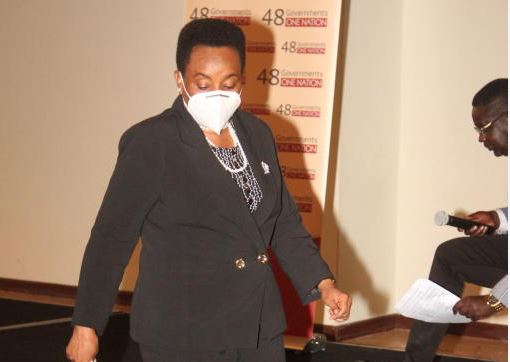×
The Standard e-Paper
Join Thousands Daily

The Judiciary has been thrown into a crisis after a judge temporarily stopped Deputy Chief Justice Philomena Mwilu from holding office.
In an unprecedented move, Meru High Court Judge Patrick Otieno ordered Justice Mwilu to step aside pending determination of a suit filed by Mwongela Isaiah Mbiti.